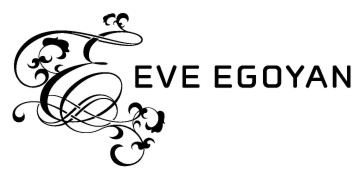The Art of Touching the Keyboard
The Live Music Report
She is respected as an impeccable performer with a daring and original ear, yet Toronto-based pianist Eve Egoyan’s third CD is the one she published herself, albeit with the help of the Arts Councils of Canada and Ontario. Evidently, works by living composers from Britain, Japan, Denmark and Canada, conventionally considered a ‘hard sell’, are what she chose for the solo recital she wanted to record, and she just did it. Ms. Egoyan’s enterprise here offers four world première recordings, and several ‘older’ New Music compositions.
She commissioned Canadian José Evangelista’s 21 arrangements of traditional melodies from Spain — folk songs, lullabies, dances and two Sephardic melodies. Most of them have a duration of 30 seconds or less and are performed traditionally, that is monodically, without harmony or counterpoint. Interestingly, in his program notes, Evangelista writes, “The goal is to create the illusion that several voices simultaneously perform slight variations of the same melody on different octaves.” My strongest impression of their ‘sameness’ is in their uncanny resemblance to the Dervish-inspired hymns, prayers and sacred dance rituals originating with the Russian mystic G.I. Gurdjieff, which were first transcribed for solo piano and performed in the late 1920’s by Thomas de Hartmann.
Another piece with spiritual orientation is Per Nörgard’s “Turn”, a 12-minute composition noted to be “a declaration of love for the universal order”. In a non-theistic, Zen-like way, Stephen Parkinson’s 13-part composition “Trail” shows his spirituality by including the performer in the composition, inviting her to “make interesting music from the simplest of materials and the barest of textures”.
Judith Weir writes about her composition which Egoyan uses as the album title:” The music…demonstrates the many ways in which the piano keys can be touched….” Ms. Egoyan performs this technically demanding tour with a sensitive gradation of feeling that glows through the discipline of her execution.
Karen Tanaka of Japan and Allison Cameron of Canada are included with sparse pieces that demand close attention and repay careful listening. It is, as the poet Robert Frost wrote about the song of the oven-bird, who sings when few leaves are left on the trees: “The question that he frames in all but words/ Is what to make of a diminished thing.” -Stanley Fefferman
